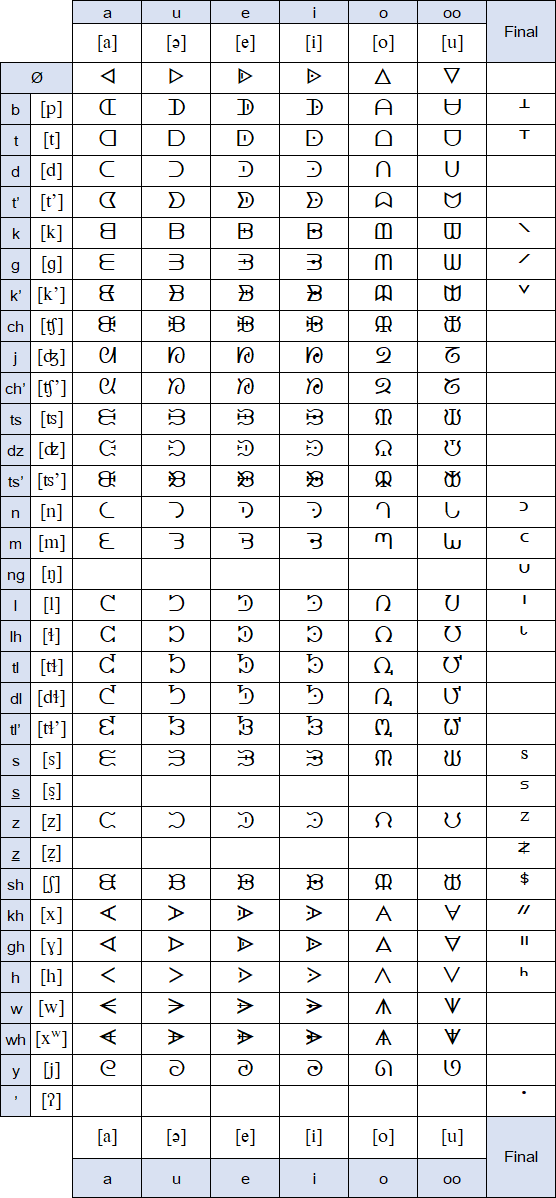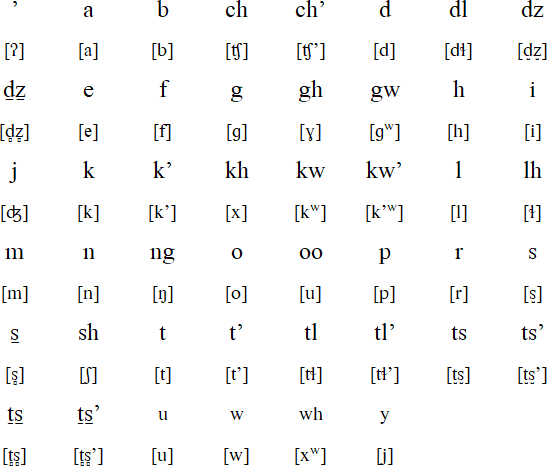(Déné Syllabics)

The Carrier syllabary, or Déné Syllabics, was devised
by Father Adrien-Gabriel Morice in 1885. He adapted it from the syllabic
writing systems developed for the Athabaskan languages of the Northwest
Territories of Canada by Father Emile Petitot.
The Carrier syllabary was fairly widely used for several decades for such purposes as writing diaries and letters and leaving messages on trees. Though the syllabary is no longer used or understood by many people, there has been a recent revival of interest in it and it occasionally appears on plaques and memorials.
In the 1960s, the Carrier Linguistic Committee in Fort St James developed an alternative writing system based on the Latin alphabet. This system is now the most popular writing system for Dakelh.
Used to write
Carrier (Dakeł / ᑕᗸᒡ), an Athabascan language spoken by 3,600 people in central British Columbia, Canada.This syllabary has also been adapted to write a number of other indigenous languages of North American such as Cree and Inuktitut.
Carrier syllabary


Tower of Babel in Carrier
Links
Yinka Déné Language Institutehttp://www.ydli.org
Information about Déné syllabics
http://www.ydli.org/dakinfo/dulktop.htm
Carrier - Canadian Aboriginal Syllabics transliteration system
http://www.translitteration.com/transliteration/en/carrier/canadian-aboriginal-syllabics/
No comments:
Post a Comment
Note: Only a member of this blog may post a comment.